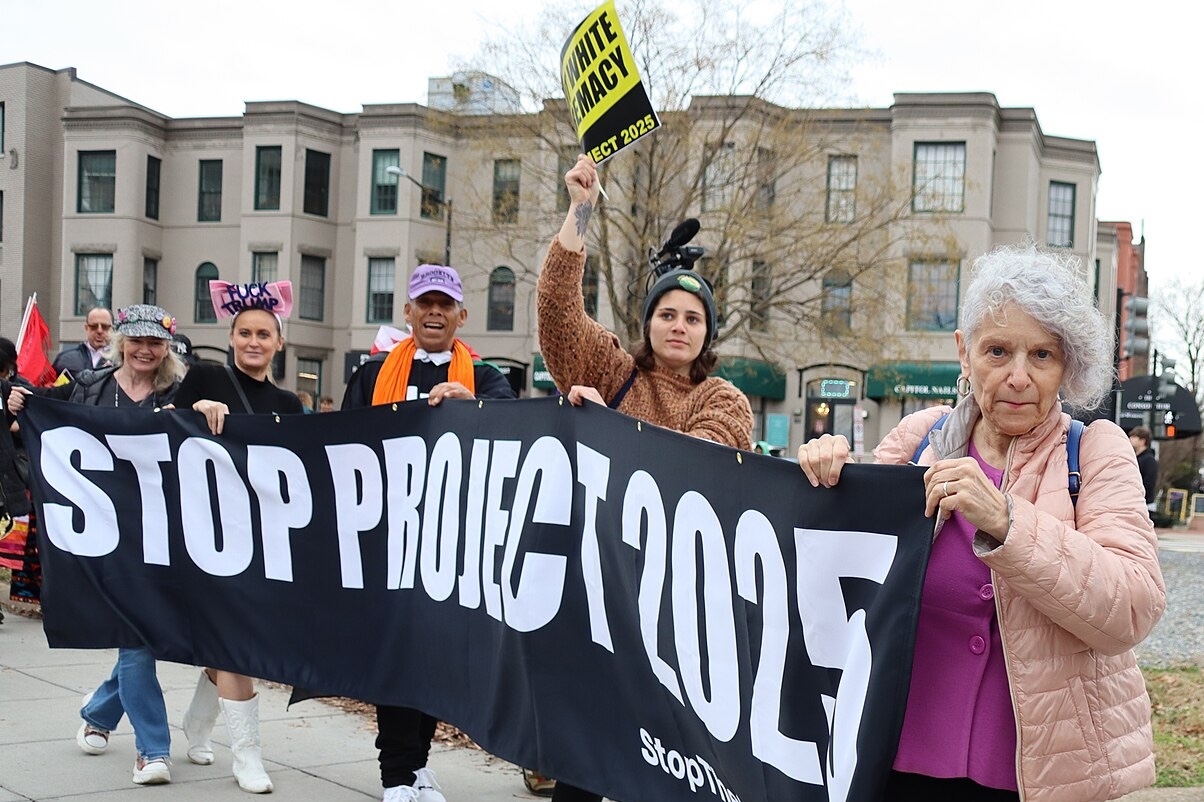Top Stories
Trump’s DOGE Initiative: A Shift Towards Loyalty Over Competence

The initiative launched by President Donald Trump to appoint Elon Musk and Vivek Ramaswamy as heads of the newly formed Department of Government Efficiency (DOGE) has sparked significant controversy. This program, intended to streamline government operations and eliminate waste, has instead raised questions about the prioritization of loyalty over competence within federal agencies.
In a statement regarding the initiative, Trump emphasized the need for a government free of corruption, stating, “Together, these two wonderful Americans will pave the way for my Administration to dismantle Government Bureaucracy, slash excess regulations, cut wasteful expenditures, and restructure Federal Agencies.” However, this promise has been met with skepticism as the actions taken under DOGE appear to reflect a broader agenda aligned with the controversial Project 2025.
The goals of Project 2025, which outlines a radical reformation of government institutions, have focused primarily on dismantling the structures that support civil rights and social equity. The proposal explicitly aims to remove key terms related to diversity and inclusion from federal regulations, effectively targeting the very foundations of American civil society. The agenda extends to educational frameworks, where the removal of critical race theory and gender ideology is emphasized, raising concerns about the implications for future generations.
Under the Trump administration, the removal of independent inspectors general has significantly weakened oversight capabilities. According to a report on January 22, 2025 by the Associated Press, approximately 17 inspectors general were dismissed, marking a substantial shift in how government accountability is managed. Max Stier, president and CEO of the nonpartisan Partnership for Public Service, highlighted that the work of inspectors general saves taxpayers billions annually, underscoring the risks of reduced oversight.
The DOGE initiative has led to substantial layoffs within key federal agencies, including the Federal Emergency Management Agency (FEMA) and the National Oceanic and Atmospheric Administration (NOAA). Reports indicate that over 1,000 employees were terminated, including critical staff responsible for disaster response and climate forecasting. As natural disasters increase in frequency and intensity, the impact of these layoffs could be dire, diminishing the government’s ability to respond effectively.
FEMA has faced particular scrutiny following the appointment of Kristi Noem as Secretary of Homeland Security, who advocated for a restructured agency that could potentially undermine federal assistance in disaster situations. In a conversation with CNN, Noem stated her intent to allow local officials greater control over disaster relief, a strategy that has raised concerns about the swift deployment of aid during emergencies.
The staffing changes within NOAA, which began in February 2025, have further exacerbated fears regarding the government’s preparedness for climate-related events. Reports from major news outlets detail how the reduction in personnel has hindered weather forecasting capabilities, essential for timely disaster response.
In a recent high-profile incident, the inaccessibility of FEMA’s acting administrator during a critical flooding event in Texas highlighted the potential consequences of these leadership changes. As reported by The Washington Post on September 24, 2025, the inability to reach key officials during emergencies can result in disastrous delays, ultimately risking lives.
Critics of the administration’s approach argue that prioritizing loyalty over expertise not only undermines the efficacy of government agencies but also poses a threat to the well-being of the public. The current trajectory suggests a troubling trend where competence is sidelined in favor of political allegiance, raising concerns about the future of governance in the United States.
The implications of these changes extend beyond the immediate impacts on federal agencies. As the administration continues to push the boundaries of executive authority, the repercussions for civil rights, environmental protection, and public health could be profound. The focus on dismantling established norms in favor of a more ideologically driven agenda represents a significant shift in the landscape of American governance.
Ultimately, the actions taken under the DOGE initiative and Project 2025 highlight a growing divide between the ideals of efficient governance and the realities of political maneuvering. As the administration moves forward, it remains to be seen how these changes will affect the fabric of American democracy and the lives of its citizens.
-

 Health3 months ago
Health3 months agoNeurologist Warns Excessive Use of Supplements Can Harm Brain
-

 Health3 months ago
Health3 months agoFiona Phillips’ Husband Shares Heartfelt Update on Her Alzheimer’s Journey
-

 Science1 month ago
Science1 month agoBrian Cox Addresses Claims of Alien Probe in 3I/ATLAS Discovery
-

 Science1 month ago
Science1 month agoNASA Investigates Unusual Comet 3I/ATLAS; New Findings Emerge
-

 Science4 weeks ago
Science4 weeks agoScientists Examine 3I/ATLAS: Alien Artifact or Cosmic Oddity?
-

 Entertainment4 months ago
Entertainment4 months agoKerry Katona Discusses Future Baby Plans and Brian McFadden’s Wedding
-

 Science4 weeks ago
Science4 weeks agoNASA Investigates Speedy Object 3I/ATLAS, Sparking Speculation
-

 Entertainment4 months ago
Entertainment4 months agoEmmerdale Faces Tension as Dylan and April’s Lives Hang in the Balance
-

 World3 months ago
World3 months agoCole Palmer’s Cryptic Message to Kobbie Mainoo Following Loan Talks
-

 Science4 weeks ago
Science4 weeks agoNASA Scientists Explore Origins of 3I/ATLAS, a Fast-Moving Visitor
-

 Entertainment4 months ago
Entertainment4 months agoLove Island Star Toni Laite’s Mother Expresses Disappointment Over Coupling Decision
-

 Entertainment3 months ago
Entertainment3 months agoMajor Cast Changes at Coronation Street: Exits and Returns in 2025









